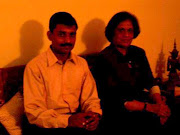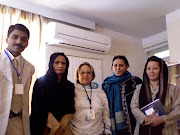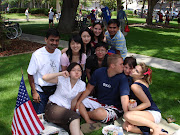The opposition parties of Bangladesh have been clamouring for political and electoral reforms for the last two years. For them, these reforms meant a neutral caretaker government and administration which can hold free and fair election. They thought that these reforms would be a tall order for the then Khaleda Zia government and the subsequent caretaker government appointed by her. Things however changed with the assumption of power by the Fakharuddin Ahmed as the head of the new caretaker government. He appears to be taking political reforms further than most opposition political parties had bargained for.
The political reform agenda suffered a setback when the caretaker government was forced to drop its plan of sending the chiefs of both political alliances in self-exile. The increasing domestic and political criticism prompted this decision. Following this Shaikh Hasina was allowed to return to the country. Her return also caused a minor breach of the emergency law when nearly 20,000 of her supporters lined up on both sides of the street to welcome her. This spontaneous turn out of thousands of people indicated that people did not like the decision of the government to exile Shaikh Hasina.
Sensing the changed situation, Khaleda Zia also dropped her plan to leave the country. To increase control over her party, she appointed her brother Major (retd) Sayeed Iskandar as party vice-chairman. This decision of Khaleda only added fuel to the already brewing rebellion inside the party.
The reform agenda was also affected when the Nobel peace prize winner and microcredit pioneer Muhammad Yunus announced that lack of support had forced him to pull out of a plan to create a new corruption-free political party. The government now faces the prospect of trying to reshape Bangladesh politics without any obvious challenger to former premiers Zia and Sheikh Hasina, who held power alternately since 1991.
A section thought that the failure of the caretaker government to exile former premiers Khaleda Zia and Sheikh Hasina Wajed - whose bitter rivalry has been blamed for plunging the country into political chaos – has chastened it. The caretaker government however is unwilling to give up the reform agenda so easily. It has asked the political parties in Bangladesh to ensure they practice internal democracy before the country holds free and fair elections.
The main thrust of the proposed reforms is to end the dynastic leadership in the parties. It will also change the way these leaders rule when they are in power. These reforms are proposed targeting former prime ministers Sheikh Hasina and Begum Khaleda Zia. Hasina is the daughter of independence leader Sheikh Mujibur Rahman, and Khaleda is the widow of former president General Ziaur Rahman.
The caretaker government also wants to strip the parties of their powerful and often militant student wings, which triggered immediate protests by Hasina's Awami League and Khaleda's Bangladesh Nationalist Party (BNP). Both the BNP and Awami League bank heavily on the support of students and professional groups in this politically volatile south Asian country.
The government plans to implement democracy and financial transparency in the political parties. The Election Commission has proposed that parties register with it by submitting lists of their elected leaders. According to a senior Election Commission official, retired army Brigadier-General Sakhawat Hossain, these parties will have to complete elections to their central and grassroots committees in accordance with their constitutions before applying for registration. They will also have to disclose sources of funds. No political party would be allowed to contest national elections if it failed to register or complete the stipulated reforms.
The steps taken by the caretaker government for political reforms has encouraged several people within both BNP and the Awami League to discuss this hitherto forbidden issue. Dhaka City Corporation (DCC) Mayor Sadeque Hossain Khoka on May 10 stated that it was the best time to reduce the BNP chairperson's power to make unilateral decisions as the party is mature now. While talking about the appointment of BNP chief Khaleda Zia's brother Major (retd) Sayeed Iskandar as party vice-chairman, Khoka said time has come to reduce the unilateral power of the party chairperson. He said, "Such unilateral power was necessary when the party was formed, but now it is a mature party." He pointed out that the decentralization of power is necessary in BNP to make it a pro-people party.
Senior BNP leader M Saifur Rahman called for an end to 'dynastic' politics and said a number of mistakes committed by the last BNP-led four-party government brought on the present situation. In an interview to media on May 12, the former Finance and Planning Minister said the extension of the judges' retirement age and the appointment of the president as the head of the caretaker government were the reasons which brought on the present situation. Saifur said, "There should be an immediate end to family-centric politics." He criticised Khaleda's younger brother Major (retd) Saeed Iskandar's appointment as BNP’s vice-chairman.
The international community especially the EU member nations appear happy with the reform agenda of the caretaker government. Addressing a media conference marking the European Day in Dhaka the ambassadors of the EU member countries extended full support to the caretaker government in carrying out the electoral reforms and the anti-corruption drive. About the holding of the general election, British High Commissioner Anwar Choudhury said they support the caretaker government for holding credible elections and also leaving behind a set of reforms and infrastructure to ensure the future elections are held with high standards and democracy here could be sustainable. He also did not agree that with the notion that Fakharuddin Ahmed’s is a military-backed government. He said it is a civilian caretaker government within the constitutional arrangement enjoying the support of the military, and so far, of the people.
The United States has however observed that Bangladesh and Bangladesh's democracy will face a setback if a non-elected government stays for an extended period of time. A spokesman for the State Department stressed that the caretaker government needs to move as quickly and effectively as it can to elections to continue the momentum of Bangladeshi democracy.
The caretaker government is also making conscious effort to create positive international opinion in favour of its reform agenda. With this objective it sent special envoy Farooq Sobhan to the UN Secretary General Ban Ki-moon. Sobhan apprised the secretary general of various reform measures adopted by the caretaker government to hold the election before the end of 2008. He also met a number of UN officials.
Sobhan noted that the Election Commission is back on track and preparing a fresh voter list. He informed that both the chief adviser and the chief election commissioner have announced that the elections will be held before the end of 2008. The United Nations agreed to extend technical and financial assistance for holding a free and fair election in Bangladesh.
Meanwhile, both the Awami League (AL) and BNP have urged the caretaker government to lift restriction on internal politics soon so that they can have discussion with the Election Commission (EC) to expedite electoral and political reforms. The two parties said as soon as the government lifts the embargo they will hold discussion within their policymaking forums to finalise their views on EC's draft proposals for electoral reforms. They felt that it was impossible for them to assist the EC in carrying out the electoral reforms unless the ban was withdrawn. Earlier on April 4, the EC asked the government to lift the restriction allowing it to sit in dialogue with the political leaders to finalise the electoral reform proposals.
On the other hand, Fakharuddin Ahmed has defended his reliance on military help to run the country’s emergency government, and insisted that he is in charge. Speaking to BBC Fakhruddin Ahmed said that the military has only aided reforms, including a crackdown on corruption in which scores of political leaders have been arrested. He said, “The military is certainly backing the government but let me point out that this government was sworn in under a provision of the constitution…they are particularly providing very important services in maintaining law and order and combating crime and corruption.”
Reports have also indicated that both the government and the EC want the stalled ninth parliamentary election to be held much before the announced time frame of end 2008 if the EC can complete preparing the voter list. The Election Commission (EC) is looking for ways to prepare the voter list with photographs in the shortest possible time within the 18-month time frame. Bangladesh president Iajuddin Ahmed had also invited CEC ATM Shamsul Huda and two other election commissioners at Bangabhaban and asked them to make arrangements for holding the election in "shortest possible time".
The international and domestic pressure has made the caretaker government adopt a less hawkish approach to the reform agenda. But it has not given up. The government is trying to give a legal basis for reforms within political parties. This will create an infrastructure which will help democracy within the political parties. This is a laudable effort of the caretaker government. No doubt, Sheikh Hasina and Begum Zia have played a crucial role in Bangladesh politics. But the way they have governed the country has left a lot to be desired. The emergency rule has led to some introspection in these political parties. Still, it is not sufficient enough to bring any major change in the way these organizations have been functioning. The civil society of Bangladesh has also emphatically advocated the need for democratic change within the parties as a way of ensuring credible general elections and a stable democratic order. At the same time, the government must take some measures which would increase confidence of the political parties. For instance, the demand to remove the ban on indoor politics has been raised not only by the political parties but also by the EC. EC thinks that for any meaningful political reform, it must hold consultation with the stake holders i.e. political parties. This is not possible unless the ban on indoor politics is lifted.











